Adapting our computing curriculum resources for Kenya — the journey so far
Young people everywhere deserve a high-quality computing education. But what a high-quality computing education looks like differs depending on a learner’s culture, context, and the existing provision in the country they live in. Therefore, adapting our educational resources for a range of contexts is a key part of our work at the Raspberry Pi Foundation, for example when we collaborate with partners to localise our Computing Curriculum resources.
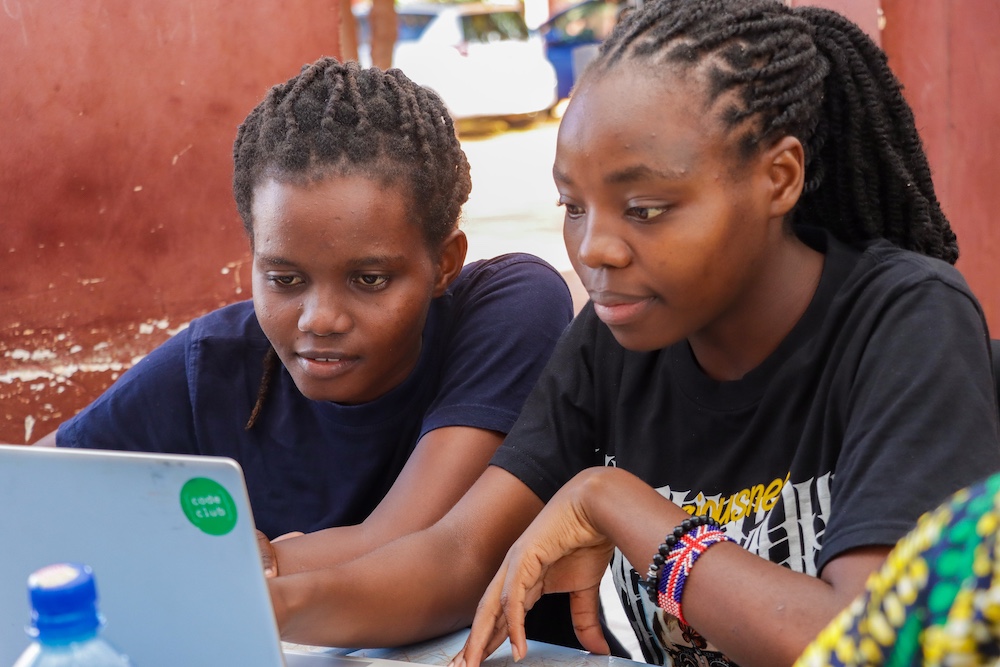
In this blog post, we share our experiences of adapting curriculum resources with our partners in Kenya, and the impact of this work. This is the first post in a mini-series of three — look out for the upcoming ones about our partnerships in the Indian states of Odisha and Telangana.
Our computing curriculum partnerships in Kenya
Last year, we embarked on partnerships in two areas of Kenya and aimed to roll out computing curriculum resources to students in grades 4 to 9 in Kenyan schools:
- In Mombasa County, we began working with delivery partner Tech Kidz Africa and the Mombasa County government. The programme is locally referred to as the Advancing Computing Literacy Project.
- In parallel, we partnered with the Frontier Counties Development Council (FCDC), initially in eight counties. Here, the programme is locally referred to as the Digital Literacy Programme.
During the 2024 academic year, we trained 39 local community trainers, who subsequently trained 453 teachers. We also adapted The Computing Curriculum materials to develop resources — lesson plans, presentation slides, and supporting activities — that are relevant and engaging in the schools our partners work with.
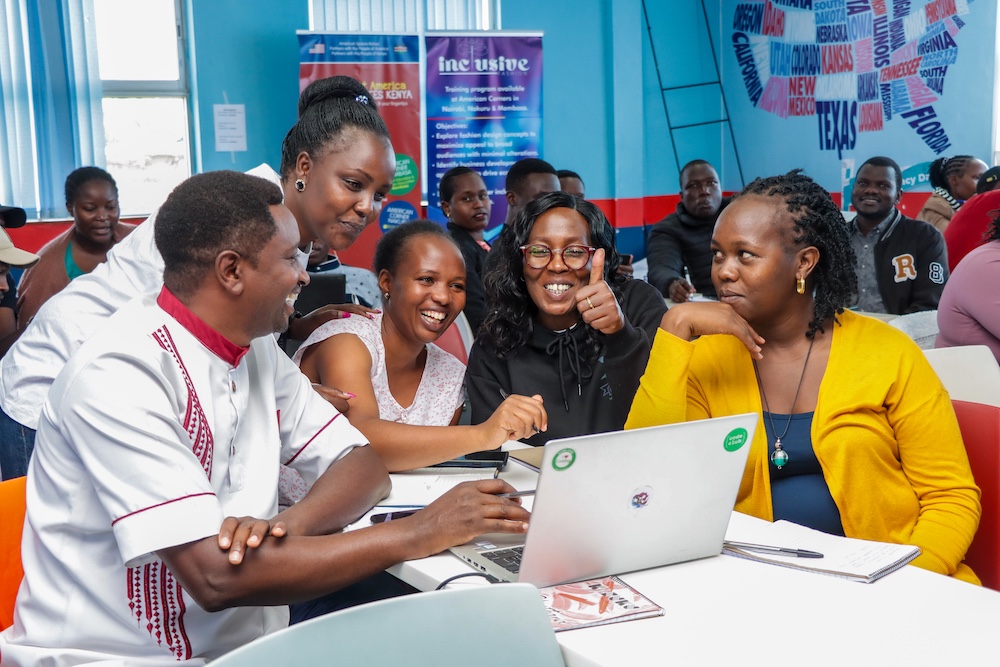
Impact in 2024
We estimate that around 55,000 students were reached by our Kenya computing curriculum resources in 2024. Most teachers who had used our resources felt the lessons had improved their students’ knowledge and skills. Of those who responded to our follow-up survey:
- 94% agreed that their students had improved their knowledge of computing concepts
- 92% agreed that their students have developed their computing skills
- 90% agreed that their students better understand how to use technology safely.
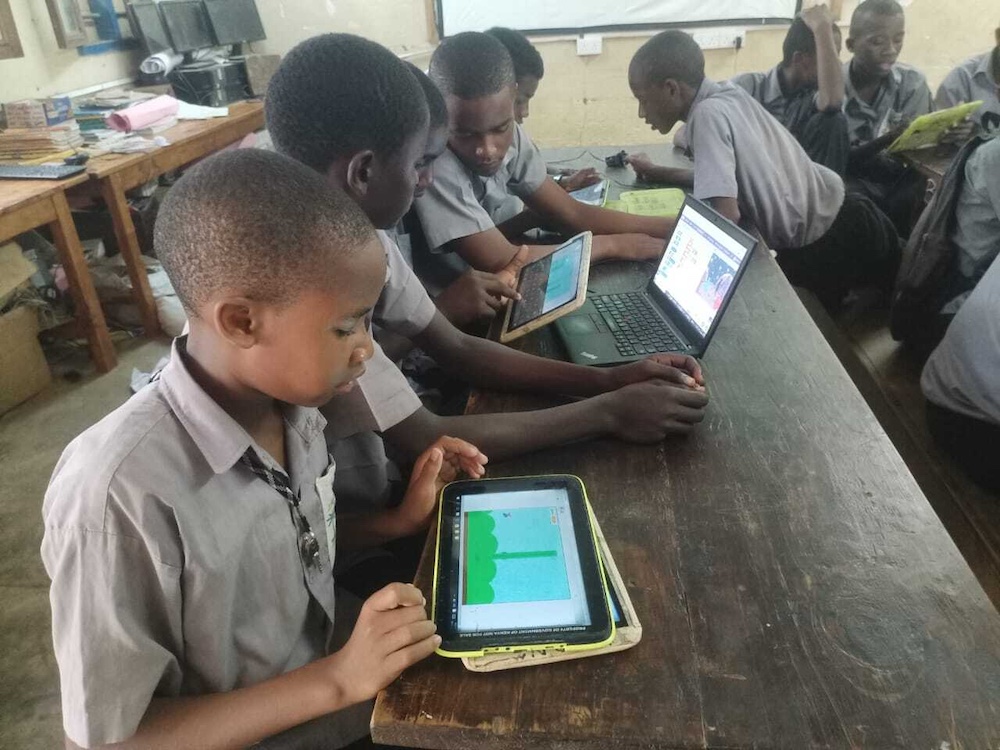
This was supported by conversations with teachers and students. In student focus groups, students were able to list topics they had learned about and skills they had developed.
“….The lessons have had a significant positive impact on the students. They now demonstrate greater confidence in using technology, particularly with tasks involving programming in Scratch. This has improved their problem-solving skills and made them more engaged in learning.” – Teacher, Mombasa
“In my computing lessons, I’ve learned how to use a computer safely and properly. I learned how to type, use the mouse, and open programs. We also learned about coding, which is really fun because we can make things happen on the screen by giving the computer instructions. I’ve also learned how to create a simple document using software like Excel sheets. I really enjoy using the computer to solve problems and make things work.” – Learner, Arid and Semi Arid Lands
Implementation: Challenges, solutions, and building on progress
While teachers tended to agree that students’ skills and knowledge had increased, fewer felt that most students had achieved the specific learning objectives identified in the resources. This was often due to the content being only partially delivered, for example, due to limited availability of computing equipment in schools. However, many students lacked prior experience with the topics covered in the lessons, suggesting a large improvement in their skills compared to a low baseline.
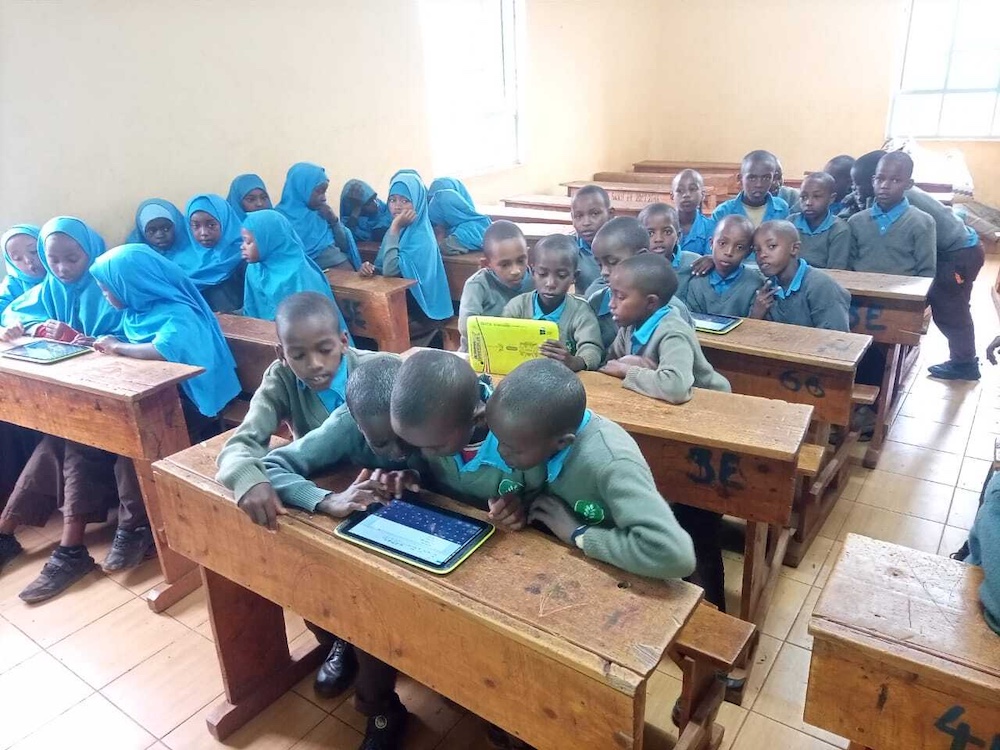
Similarly, some training sessions were affected by challenges with the equipment, infrastructure, and learning environment available. Teachers were appreciative of the training and many have begun to deliver the computing lessons, but often lacked prior experience with computing and hence requested additional support.
In response to feedback from partners and teachers, we made some updates to our Computing Curriculum and training resources in preparation for the 2025 academic year. For example, we increased the alignment to Kenya’s national curriculum, prepared a more comprehensive teacher guide, and incorporated time for teachers to discuss solutions to common delivery challenges during training.
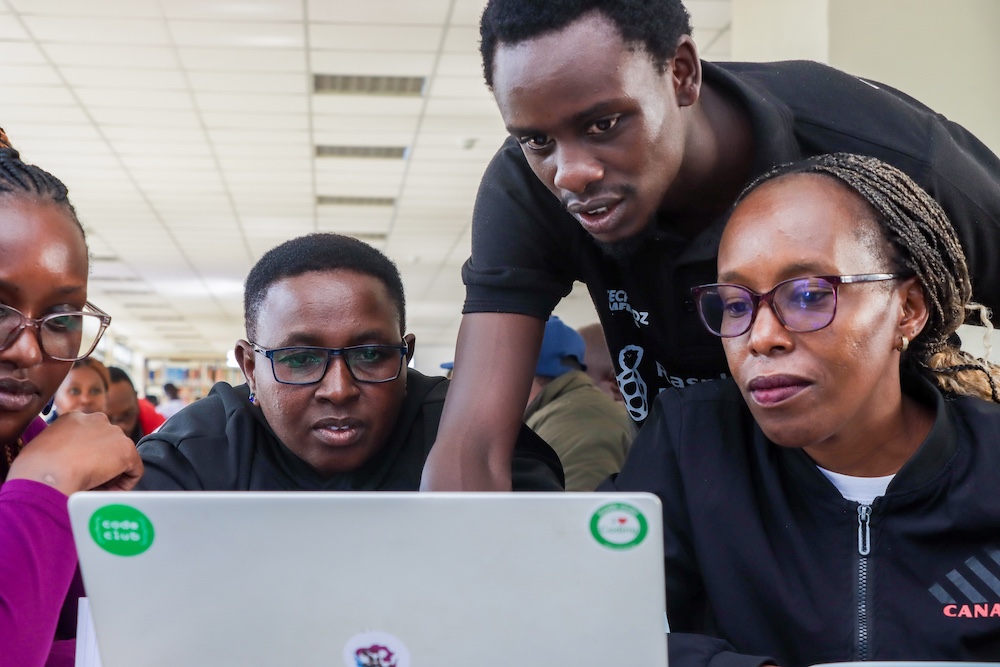
In 2025, we are working with partners to upskill even more teachers and broaden the reach of our computing lessons to a further four counties. Our partners have now begun upskilling both new and existing teachers on the updated resources, and we will continue to work with them to monitor and evaluate their programme’s success in the coming months.
Want to learn more about our curriculum resources?
You can access our free Computing Curriculum resources on our website — we are currently working to make the materials for Kenya, and for India, downloadable there.
Look out for the next blog in this mini-series in July!

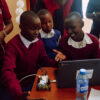
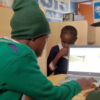
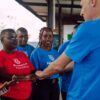



3 comments
Bushnell Peter
As the National Chair for ICT Champion Teachers and a Master Trainer in ICT integration in teaching and learning under the Teachers Service Commission, I am proud to affirm that the Advancing Computing Literacy Project (ACLP) by Techkidz Africa and the Raspberry Pi Foundation is not only timely — it is transformative.
A Timely Intervention for CBE Implementation
Kenya’s shift to the Competency-Based Education (CBE) has placed Digital Literacy at the heart of 21st-century learning. Yet, for many teachers — especially those who trained before ICT was embedded in teacher education — this transition has been daunting. Before ACLP’s rollout in Nakuru County, strands such as Visual Programming, Computer Hardware, and Software were often skipped, not due to unwillingness, but due to a lack of pedagogical and technical know-how. The ACLP has changed that narrative.
Empowering Teachers, One Training at a Time
Through Techkidz Africa’s hands-on, context-aware training, over 150 teachers in Nakuru alone have gained the confidence and competence to deliver computing lessons aligned with CBC. The sessions emphasized not just technical skills like Scratch programming, but also culturally responsive pedagogy, inclusivity, and peer collaboration — all critical for sustainable impact.
From Fear to Fluency
Today, teachers who once hesitated to touch a computer are confidently guiding learners through coding exercises, digital safety lessons, and basic productivity tools. This shift is evident in classrooms where learners now engage with computing not as a foreign concept, but as a practical, enjoyable, and empowering subject.
Digital Literacy as a National Imperative
Digital literacy is more than a curriculum strand — it is a national development priority. According to Kenya’s Vision 2030 and the CBC reform agenda, equipping learners with digital skills is essential for global competitiveness. However, this vision can only be realized if teachers are continuously supported through professional development, mentorship, and access to localized resources like those provided by the Raspberry Pi Foundation.
Challenges Remain — and So Must Our Commitment
Despite the progress, challenges persist:
– Many newly recruited Junior Secondary School teachers enter the profession with zero exposure to computing.
– Infrastructure gaps — from electricity to devices — still hinder full implementation.
– Continuous monitoring and refresher training are needed to sustain momentum.
That’s why I echo the call for scaling up this initiative. We need more training cohorts, more localized content, and stronger partnerships with county governments, tech players such as Techkidz Africa, relevant govt ministries such as CAK, ICTA,MOE,MOICT and the like. The Raspberry Pi Foundation’s updates for 2025 — including better curriculum alignment and expanded teacher guides — are a step in the right direction.
A Call to Collaborate
As someone deeply involved in national teacher capacity building, I invite more stakeholders — from policymakers to private sector partners — to join hands in this mission. Let’s ensure that no teacher is left behind, and that every learner in Kenya, regardless of location, has access to quality computing education.
To Techkidz Africa, the Raspberry Pi Foundation, and all partners: thank you for believing in Kenyan educators. You’ve not only given us tools — you’ve restored our confidence and reignited our purpose.
Let’s keep pushing forward. The digital future of our learners depends on it.
Raspberry Pi Staff Leonida Soi
Thank you for this thoughtful reflection and strong support for our shared work. As a Learning Manager involved in content development and educator training with the Raspberry Pi Foundation here in Kenya, it’s truly encouraging to see how the ACLP is boosting teachers’ confidence and making a real difference in classrooms. Your leadership and dedication to expanding access to quality computing education mean a lot.
Raspberry Pi Staff Rujeko Moyo
It’s good to learn of these ongoing updates and adaptations to support the learning and teaching of computing education in Kenya. Even more encouraging is realising firsthand – through comments in this thread – how impactful this work is, on both teachers and learners!